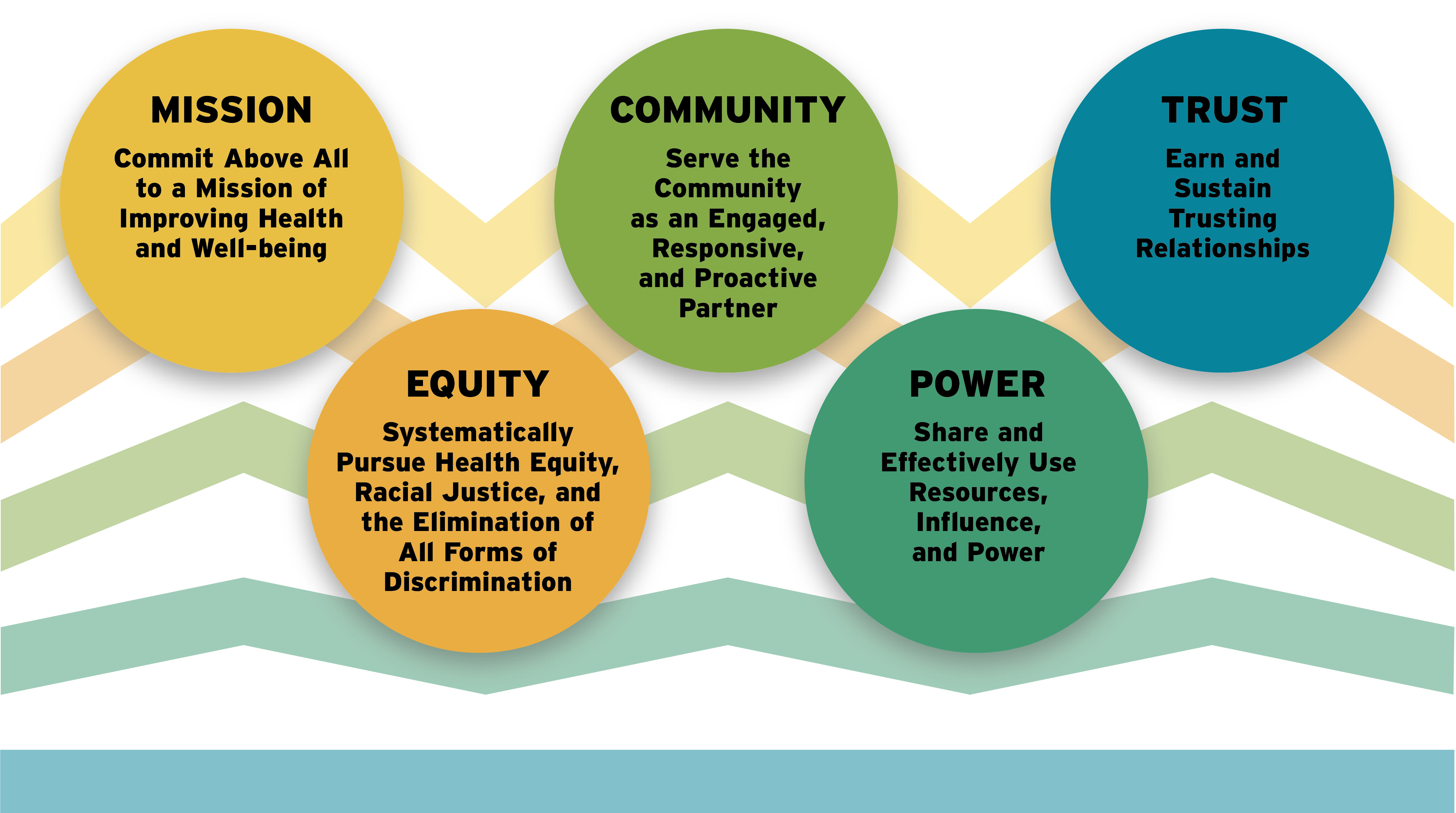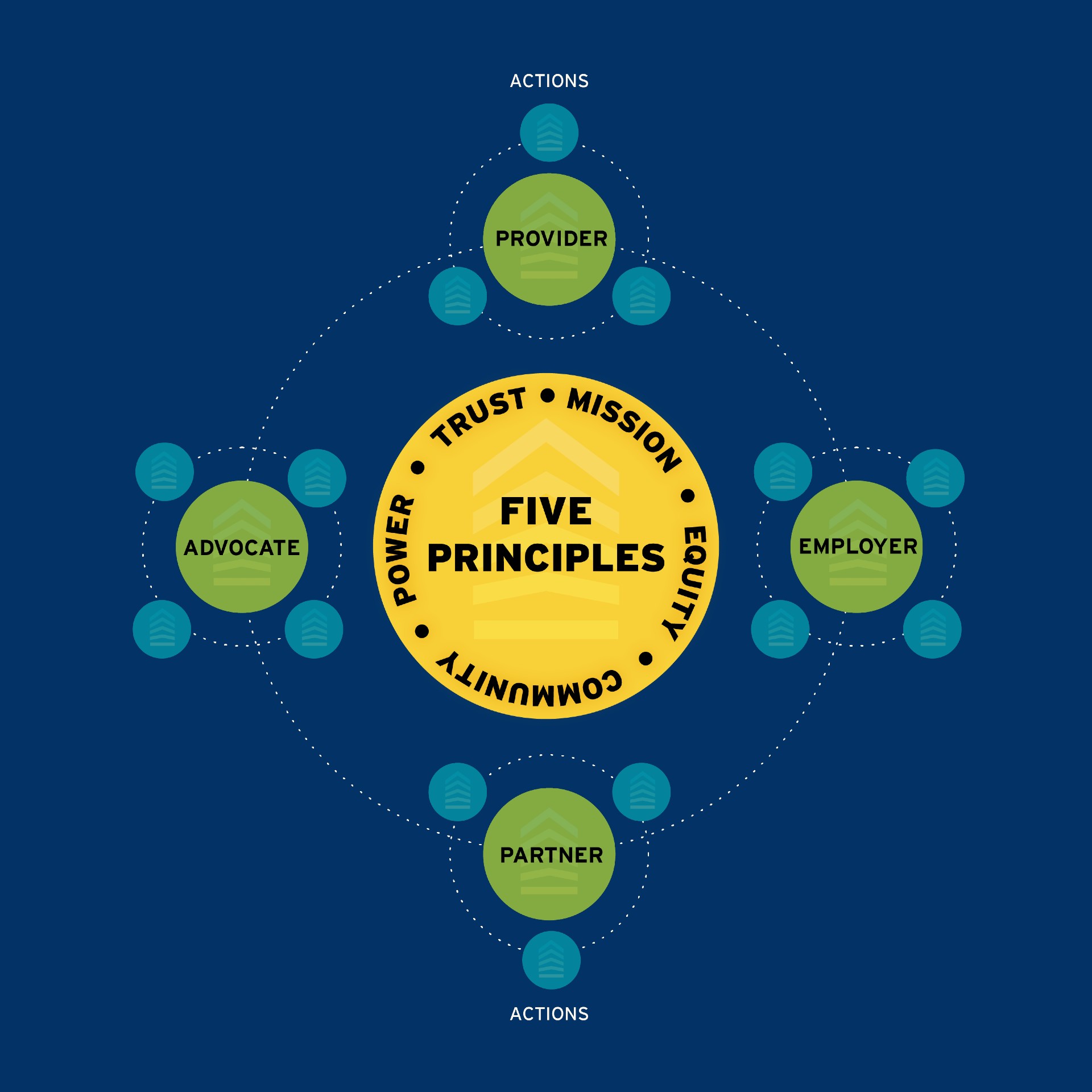The Raising the Bar framework helps healthcare leaders meet their mission. Raising the Bar identifies foundational principles that serve as healthcare’s gravitational force to continuously center equity work. Essential roles healthcare must play revolve around these principles, each with corresponding concrete actions that can improve equity and excellence.
Foundational Principles
Raising the Bar convened those who get, give, and pay for healthcare to create five foundational principles for healthcare to raise the bar on equity and excellence. The framework was crafted and shaped both by healthcare system experts and by people with lived experience of inequities.

Healthcare shows a commitment to raise the bar by fully adopting and implementing the mission of improving the health and well-being of individuals, families, and communities, and putting this mission above all else.
Healthcare shows a commitment to raise the bar by providing everyone with a fair and just opportunity to be as healthy as possible, regardless of their race, ethnicity, preferred language, gender, sexual identity, age, disability status, religion, employment, income, migrant status, and other factors.
Healthcare shows a commitment to raise the bar by recognizing its responsibility and potential as a collaborative, accountable partner with communities.
Healthcare shows a commitment to raise the bar by using and sharing resources, influence, and power in service to the community, sharing them with individuals and community organizations to the benefit of those communities’ health and well-being.
Healthcare shows a commitment to raise the bar by cultivating meaningful relationships in which the trust of individuals, families, and communities is earned, and by trusting in the ability and expertise of those individuals, families, and communities.
Essential Roles & Concrete Actions: At a Glance
Healthcare payers, providers, and organizations can play essential Roles and enact concrete Actions to put the Principles into practice.
What People are Saying
Discover what people are saying about Raising the Bar’s framework.
“Raising the Bar’s comprehensive and vetted recommendations on practices and behaviors that build trust are incredibly valuable as we strive to promote and build trust in the healthcare system.”
“The healthcare system and all those who participate in it – from hospitals to clinicians to patients – need those who pay for healthcare to achieve their health equity goals, making accessing and receiving care more equitable.”
“Everything we do is driven by conversations with partners in the community. These principles and actions were co-created with representatives from many different backgrounds and will help address health inequities.”
“Adopting the Raising the Bar framework and committing to the concrete action outlined provides healthcare a path forward.”
“We can support a brighter future for birthing people and their babies by committing to transformative change.”
“Raising the Bar provides a strategic and practical framework to help healthcare stakeholders to deploy the resources and power necessary to improve health equity in the United States.”
“The health center movement, rooted in equity, community, and delivering comprehensive care to all, provided inspiration for Raising the Bar.”
“The Raising the Bar framework is an excellent resource to help healthcare systems, public health, and community organizations work together to advance health equity and foster optimal health in every community.”
“The Raising the Bar framework provides healthcare providers with a ‘north star’ to chart their course for improving health equity. The AHA is committed to continuing to produce tools and resources—including our Health Equity Roadmap—to help hospitals on their journey.”
